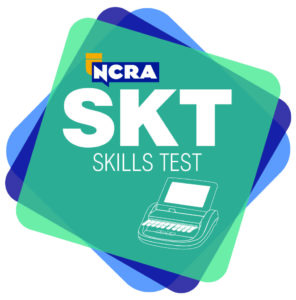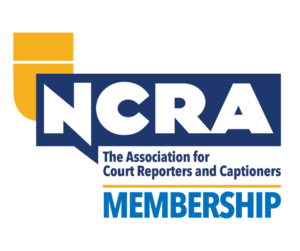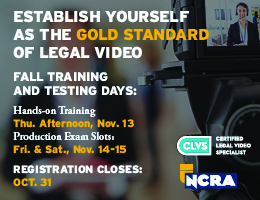If you’re considering taking NCRA’s Realtime Systems Administrator workshop, you might have some basic questions about the certificate program. As a committee, we’ve addressed some of the more recurring questions potential Realtime Systems Administrators may have.
What is the Realtime Systems Administrator certificate program, and who is the program designed for?
The Realtime Systems Administrator workshop and exam is designed to educate our members on the ABCs of troubleshooting realtime connections. This program is designed for not only reporters, but IT staff, firm owners, court personnel, and really anyone who would benefit from the information provided about troubleshooting realtime connections.
What is the difference between a CRR and a Realtime Systems Administrator?
NCRA’s CRR is a Certified Realtime Reporter, a reporter who has been certified to be proficient in realtime writing. This advanced certification indicates that the reporter has the qualifications to write realtime.
The Realtime Systems Administrator does not have to be a reporter. Passing the test indicates that the certificate holder is knowledgeable about the technical aspects of realtime connections and is proficient in troubleshooting the hardware and software used in delivering the realtime product.
An individual sporting the Realtime Systems Administrator certificatel has the expertise to troubleshoot the hardware and software to ensure that a CRR’s skill in writing realtime is displayed 100 percent of the time!
Why would anyone want to take the Realtime Systems Administrator exam?
Knowledge is power! This power allows you to have the confidence and wisdom to provide realtime to your clients without the fear of failure.
Is the Realtime Systems Administrator program only for reporters currently providing realtime?
Not at all! The Realtime Systems Administrator program is open to anyone who would like to take it. Many program attendees are IT staff. Any reporter who is interested in providing realtime will gain the valuable knowledge of the realtime products and methods of delivery by taking the RSA, and this helps prepare them for realtime readiness.
Many reporters are terrified of providing realtime because of their lack of knowledge and/or confidence in troubleshooting the issues that arise in interactive realtime environments. This workshop has been developed to give you the knowledge and confidence you need to get and stay connected. If you are a reporter and not already providing realtime, I would suggest that you take the Realtime Systems Administrator exam at a future date, after practicing your realtime connection and troubleshooting. The good news is you can audit the workshop for free any time after taking it once. This facilitates a review process before you take the exam, and it also provides you with updated information on the newest realtime delivery methods.
What are the benefits of being a Realtime Systems Administrator?
The benefits of having the Realtime Systems Administrator are huge, in the committee’s opinions. Firm owners and courtroom officials recognize that this certificate that provides assurance that you, the Realtime Systems Administrator, understand the process of troubleshooting the various modalities of the realtime reporter’s connection. In addition, committing to the two days of workshop/examination process to obtain your Realtime Systems Administrator shows your dedication to the art and science of realtime reporting.
Why would an attorney want to hire a Realtime Systems Administrator over anyone else?
Litigators and judges have a stressful job. As reporters, we know this and appreciate it more than most. It is our job to support the litigator and the judge in any way possible. Having the Realtime Systems Administrator certificate provides comfort to the litigator that their realtime feed will work 100 percent of the time. A Realtime Systems Administrator brings advanced technical knowledge to the job. A Realtime Systems Administrator has received the training that enables them to troubleshoot any technical situation that may come up at a realtime job, ensuring that the realtime will flow trouble-free. The attorney can be comfortable with the knowledge that technical problems will not prevent him from receiving the realtime product he has ordered. Realtime connection problems are one of the major reasons the RSA workshop and exam were developed.
How can you market your new Realtime Systems Administrator?
Give your Realtime Systems Administrator a big shout-out! You deserve it. It’s time for new business cards, a new email signature, a new website, letterhead – all displaying your Realtime Systems Administrator certificate.
I am not computer savvy. Will the class teach me the basics and everything I need to know? Or is it only recommended for advanced, experienced reporters?
The workshop begins with the basics and ends with the advance features of troubleshooting. It may be best to take the Realtime Systems Administrator 101 Seminar prior to actually signing up for the Realtime Systems Administrator workshop. This seminar is designed to answer the basic questions of troubleshooting realtime and provide you with information that should allow you to better understand and fully participate in the workshop.
Has the Realtime Systems Administrator class actually helped you become a better reporter?
If confidence and a 100 percent connection rate qualifies as success, then yes! The Realtime Systems Administrator class offers valuable, in-depth information on areas ranging from understanding the Device Manager and the difference between a COM port and a USB port, as well as learning the basics of popular realtime software attorneys may use out in the field. There’s no other place you can get this specialized information but from the RSA class! You leave the class with a handbook that you can review again and again and again (if there’s something you haven’t quite grasped yet), as well as a discount on the Realtime Troubleshooting Pocket Guide.
Is the exam easy or difficult?
That all depends on your level of knowledge and experience, as well as the ability to control your nerves. If you are routinely hooking up computers/tablets for realtime and have a working knowledge of how all the various equipment interfaces with each other (and taking the Realtime Systems Administrator class is expanding on that knowledge base), you may feel like the exam is easy and that the test is very similar to something you are used to doing every time you start a realtime job (troubleshooting connections and knowing how and where to look for issues).
If you have never (or rarely) hooked up realtime feed to computers/tablets and you are hoping to learn what you need to know in the Realtime Systems Administratorclass to pass the exam, you may feel like the exam is more challenging to pass, and you may struggle to do so.
It’s expensive! Is it really worth it?
Yes! Not only will you educate yourself, you will work with other reporters in a supportive environment to ensure success in the program. In addition, you will receive a copy of the PowerPoint presentation and a 500-page realtime troubleshooting document with information on most, if not all, of the realtime programs used in the field. And, remember, you can always sit in on the workshop again to refresh your skills and to get updates on the new realtime technology.
This article was written by the Realtime Systems Administrator Committee and edited by James Woitalla, RDR, CRI, chair of the committee. Woitalla, who is from Minnetonka, Minn., can be reached at woitalla@skypoint.com.












